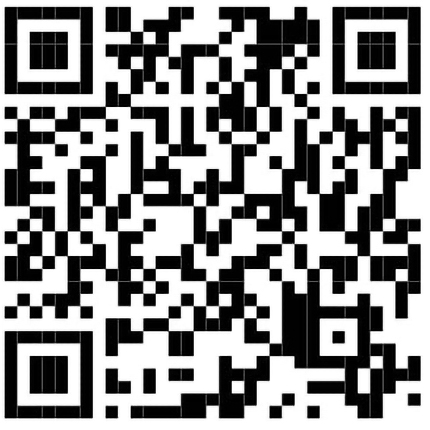What Happens to WhatsApp (Meta) Data

Adolph
4시간 9분전
4
0
본문
In recent years, there have been numerous heated debates surrounding WhatsApp's commercial use of user data, particularly with its parent company, Meta (formerly Facebook). As one of the most widely used messaging apps in the world, it is essential for users to understand what information is being transferred to WhatsApp and Meta.
When WhatsApp was acquired by Facebook in 2014, users' concerns about data sharing rose significantly. Many questioned whether the new ownership would compromise the user data of WhatsApp users. In response to these concerns, the then-WhatsApp CEO, Jan Koum, reassured users of users that the app would not share their personal data with Facebook.
However, in the years following the acquisition, WhatsApp's data sharing policies have evolved significantly. In 2016, WhatsApp began sharing user data with Facebook, in line with global privacy laws. Initially, the data shared was limited to hashed user phone numbers, but in 2021, Meta announced that it would expand the scope of shared data with Facebook.
The data shared between WhatsApp and Meta includes:
1 User phone numbers: WhatsApp shares user phone numbers with Facebook, which can be linked to the user's Facebook account.
2 Device data: WhatsApp shares device information, including device model, OS, and language, with Facebook.
3 User account details: WhatsApp shares user account information, such as account type (e.g., individual or business), with Facebook.
4 Transaction happenings: WhatsApp shares transaction data, including purchase history, whatsapp电脑版下载 with Facebook.
5 Other info: WhatsApp shares other metadata, such as user behavior (e.g., when they last used the app), with Facebook.
It is crucial to note that WhatsApp's data sharing practices are open to adaptation. Additionally, users have the option to adjust their data sharing settings, such as profile information and emojis.
While WhatsApp and Meta have been transparent about their data sharing practices, users should remain cautious and vigilant. This can include:
1 Using end-to-end security measures: Ensure that messaging services, like WhatsApp, use end-to-end encryption to prevent data interference.
2 Enabling two-factor security layers: Activate two-factor authentication to make it more difficult for unauthorized access to users' accounts.
3 Regularly updating software: Keep WhatsApp and other apps up-to-date to ensure the latest security patches and features.
4 Setting data sharing preferences: Review and adjust data sharing preferences on the apps users visit to limit the amount of data shared.
In summary, understanding WhatsApp's data sharing practices with Meta is critical for users who value their online privacy. While some data sharing is inevitable, users can take steps to protect their data and reduce the risk of its misuse.

When WhatsApp was acquired by Facebook in 2014, users' concerns about data sharing rose significantly. Many questioned whether the new ownership would compromise the user data of WhatsApp users. In response to these concerns, the then-WhatsApp CEO, Jan Koum, reassured users of users that the app would not share their personal data with Facebook.
However, in the years following the acquisition, WhatsApp's data sharing policies have evolved significantly. In 2016, WhatsApp began sharing user data with Facebook, in line with global privacy laws. Initially, the data shared was limited to hashed user phone numbers, but in 2021, Meta announced that it would expand the scope of shared data with Facebook.
The data shared between WhatsApp and Meta includes:
1 User phone numbers: WhatsApp shares user phone numbers with Facebook, which can be linked to the user's Facebook account.
2 Device data: WhatsApp shares device information, including device model, OS, and language, with Facebook.
3 User account details: WhatsApp shares user account information, such as account type (e.g., individual or business), with Facebook.
4 Transaction happenings: WhatsApp shares transaction data, including purchase history, whatsapp电脑版下载 with Facebook.
5 Other info: WhatsApp shares other metadata, such as user behavior (e.g., when they last used the app), with Facebook.
It is crucial to note that WhatsApp's data sharing practices are open to adaptation. Additionally, users have the option to adjust their data sharing settings, such as profile information and emojis.
While WhatsApp and Meta have been transparent about their data sharing practices, users should remain cautious and vigilant. This can include:
1 Using end-to-end security measures: Ensure that messaging services, like WhatsApp, use end-to-end encryption to prevent data interference.
2 Enabling two-factor security layers: Activate two-factor authentication to make it more difficult for unauthorized access to users' accounts.
3 Regularly updating software: Keep WhatsApp and other apps up-to-date to ensure the latest security patches and features.
4 Setting data sharing preferences: Review and adjust data sharing preferences on the apps users visit to limit the amount of data shared.
In summary, understanding WhatsApp's data sharing practices with Meta is critical for users who value their online privacy. While some data sharing is inevitable, users can take steps to protect their data and reduce the risk of its misuse.

댓글목록0
댓글 포인트 안내